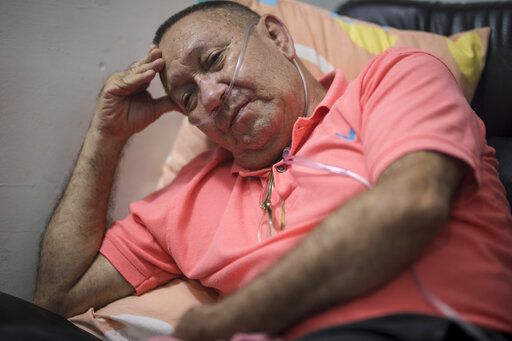BOGOTA, (Reuters) – Colombian Victor Escobar became the first person in the Andean country with a non-terminal illness to die by legally regulated euthanasia late on Friday, his lawyer Luis Giraldo confirmed.
Escobar, 60, suffered from end-stage chronic obstructive pulmonary disease, which causes greatly diminished quality of life, as well as a number of other conditions, Giraldo told Reuters.
Colombia’s Constitutional Court removed penalties for euthanasia under certain circumstances in 1997 and ordered the procedure to be regulated in 2014. The first person in Colombia with a terminal illness to die under those rules was in 2015.
“We reached the goal for patients like me, who aren’t terminal but degenerative, to win this battle, a battle that opens the doors for the other patients who come after me and who right now want a dignified death,” Escobar said in a video message sent to media by Giraldo.
The procedure took place in a clinic in Cali, the capital city of Colombia’s Valle del Cauca province.
“I’m not saying goodbye, just ‘see you later,'” Escobar said.
He fought two-years for his right to euthanasia in the face of opposition from doctors, clinics and courts, even though the Constitutional Court last year recognized the procedure should not be available just for the terminally ill.
As of Oct. 15 last year, 178 people with terminal illnesses had been legally euthanized in Colombia since 2015, according to Colombian legal rights advocacy group DescLAB.
Colombian woman Martha Sepulveda, who was diagnosed with Lou Gehrig’s disease in 2018, was due to be euthanized on Oct. 10 last year, but the procedure was halted at the eleventh hour.
While a judge has since ruled in favor of Sepulveda’s appeal for the procedure to go ahead, a new date has not been set.









